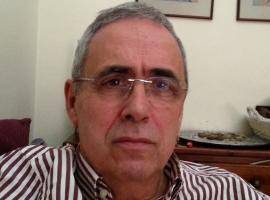B-Mincome – blog post on two of the project’s Active Social Policies
In this case, the Active Policy number 1 and 4 are of high interest. On the one hand, it should be noted that the first Active Policy, the program in training and labour occupation, was designed in order to provide with a professional training program of 5 months (up to 480 hours) and a 12 month work contract, to 150 B-MINCOME recipients.
These labour contracts are distributed along six different sectors (public infrastructure refurbishment, ecologic sustainability, fostering local economic development, leisure and communitarian cohabitation, nutrition, and social and communitarian health assistance). These sectors, also called “projects of collective interest”, were co-designed by the Social Rights Area of Barcelona City Council, the three Districts involved into the pilot, Barcelona Activa (the public labour institution), and a myriad of social and communitarian associations. While the Barcelona Educational Consortium was the public institution in charge of designing and implementing the training program, it was Barcelona Activa the one leading the matching process of those 150 recipients with the different social business and institutions involved in this Active Policy.
By November, 115 recipients of B-MINCOME will be hired within this Active Policy. The remaining 25 recipients are expected to be recruited within the near future with people from outside the project. In addition, it should be noted that around 12 of those B-MINCOME hired recipients were people with an irregular administrative situation, whose participation into this Active Policy have helped them to regularize their former situation. Besides that, it is expected that 50% of B-MINCOME hired recipients are enrolled in the program under conditioned modality (they are obligated to do so in order to keep into the pilot) and the other 50% are enrolled under unconditional basis, that is, they can abandon the program if they please without losing the cash transfer. In this regard, one of the most prominent outputs of this active policy is a similar behaviour of both types of recipients’ modalities: there are no observable differences between conditioned and unconditioned individuals regarding their training and job attendance.

One of the First Active Policy’s hired recipients, Besòs-Maresme neighbourhood, September 9th 2018.
On the other hand, the fourth Active Policy within the B-MINCOME pilot is the communitarian participation and engagement program, in which 276 recipients are enrolled from the very beginning of the project. This program is divided in five stages co-designed by the Citizenry Rights, Participation and Transparency Area of Barcelona City Council. The first stage was implemented in order to welcome recipients and to foster their inter-personal relationship and familiarity. The second stage was designed in order to divide these participants along their residence areas and introduce themselves and let them know some of the most active communitarian agents (neighbourhoods’ associations, cultural institutions, etc.). We are now developing the third stage of this active policy, in which different members of each territorial group are assuming more responsibilities in organizing and reinforcing their own group, as well as making them more integrated and linked to communitarian and social networks of each territory. By now, the fourth and fifth stages are planned to create projects of social interest and make these groups more autonomous from the B-MINCOME pilot, and to evaluate and redesign their own self-assigned tasks and future commitments with themselves.
A part from other responsibilities, IGOP research group of Autonomous University of Barcelona, along with The Young Foundation based in London, are in charge of following and assisting this Active Policy’s development as well as its qualitative and ethnographic impact on the same recipients and on the territory where such a policy is being implemented. IGOP’s hypothesis aims to prove whether this Active Policy might entail a positive-triple input: a) on the attitude and recipients’ behaviour towards social and communitarian engagement; b) on the associative dynamics of those neighbourhoods; and c) on the relationships between social networks and public institutions. According such a triple hypothesis, IGOP’s aim is to evaluate the impact of the fourth B-MINCOME’s Active Policy.
In order to address such a research goal, IGOP has contributed in designing the general B-MINCOME survey (filled by all the recipients of the pilot three times along the project). By now, IGOP has obtained the first results which, in general, tell us that: a) the 71,5% of recipients in this active policy are women who seem to be more proactive in engaging themselves with communitarian activities and networks; b) that the 66% of recipients were born outside Europe; d) that the 56.5% of the recipients have a good perception of their neighbourhoods, while the 26% of them say their like it very much; e) that the 55% of them share the view that the relationship among neighbours is good or very good; etc. The most salient data collected until now confirms that primary schools and public spaces are the most used public services by B-MINCOME’s recipients and that the majority of them are quite optimistic on the opportunities that the B-MINCOME pilot represent.
By its side, The Young Foundation is researching through qualitative, ethnographical methods and semi-structured interviews on 40 household’s situations along the pilot in order to check their evolution and temporal dynamics regarding their participation in the pilot. In addition, 200 recipients belonging to the eleven B-MINCOME treatment groups distributed in certain neighbours are being analysed through individualized interviews over the next months. By the end of this fourth Active Policy, IGOP and TYF will be able to draw a general framework of the ethnographic situation and social dynamics of these households as representatives of the whole B-MINCOME recipients.






















